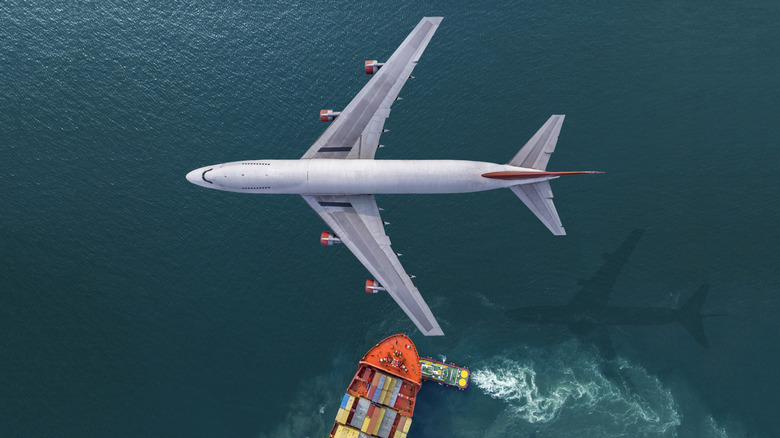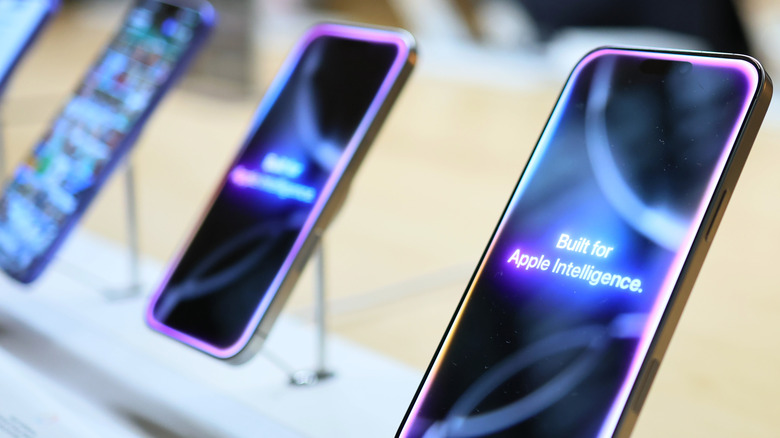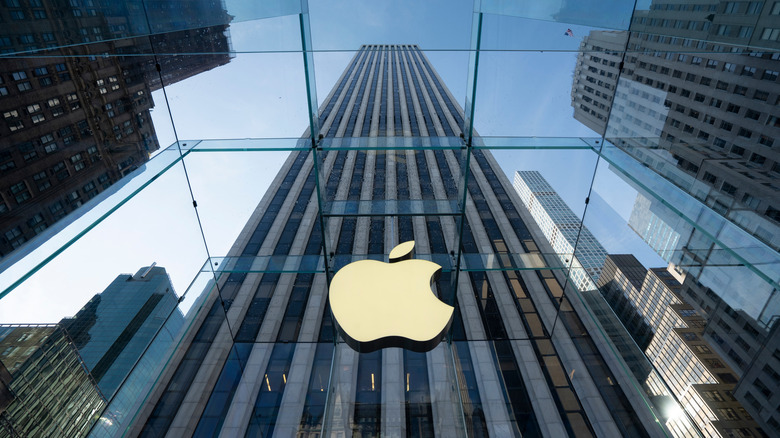The Sneaky Way Apple Is Avoiding Trump's Tariffs
President Trump's hard line on tariffs means that consumers will ultimately pay higher prices on goods imported from other countries. Whether these tariffs will benefit the nation by kickstarting a new decades-long shift towards increasing domestic U.S. based manufacturing or simply result in a trade war filled with retaliatory tariffs remains to be seen. For now, it seems like stockpiling imported goods is the most popular way forward. In fact, while American consumers consider stocking up on certain household items before tariffs take effect, major automotive businesses have filled warehouses full of supply chain essentials in an effort to avoid the rising costs of imported cars for at least a month or two.
Similarly, some investors are even overzealously buying stock during the dips caused by Trump's tariff talk. Even major tech companies, like Apple, are making creative, last-ditch efforts to keep the high price of tariffs temporarily at bay. Per sources speaking to The Times of India, in late March 2025, Apple flew five planes stocked with imported Apple products into the U.S. in order to just beat the 12:01 AM deadline of new tariffs going into effect on April 9, 2025.
Tariffs and sky-high prices
While Trump ended up issuing a last-minute 90-day pause on the implementation of most tariffs, he did raise the tariff rate on Chinese goods to 125%. The reason China's tariffs are specifically important to Apple is because Apple manufactures the bulk of its products in China — with almost 90% of Apple iPhones being made there. Meanwhile, products like Apple Watches and iPads are made in other primary supply chain points in India and Vietnam. All to say, the manufacturing costs of Apple products — and the price points for consumers — are both set to be astronomically impacted by Trump's current tariff plan. Not to mention any future or escalating tariffs.
Apple was seemingly aware of just how damaging the implementation of Trump's tariffs would be, hence their last-minute push to circumvent price hikes for as long as possible. Per a report from Rosenblatt Securities, as reported by Reuters, iPhone prices could jump by as much as 43% under current tariffs. This could bring iPhone prices up to $2,300 per phone.
Navigating potentially unfriendly skies
Of course, stockpiling goods is a short-term solution to a long-term problem. Trump and members of his administration have publicly stated that Apple should move its manufacturing base to the U.S. and make iPhones domestically — which is in line with his tariffs policy's purported purpose of bringing manufacturing back domestically. However, the economic reality of a factory future contradicts Trump's vision. If Apple manufacturing does in fact come to America, the shift is likely to be both lengthy and expensive.
While Apple CEO Tim Cook did announce Apple's four-year plan to invest $500 billion in U.S.-based ventures after a February 2025 meeting with Trump, the company has also been ramping iPhone production in India and Vietnam as another way to circumvent China-specific tariffs. In the past, Cook has also made comments that finding the thousands of highly-trained engineers necessary to supervise the volume of factory workers currently in China-based production facilities would be exceedingly difficult in the U.S, not to mention expensive.
"If consumers want a $3,500 iPhone we should make them in New Jersey or Texas or another state," warns a note from research firm, Wedbush (via The Wall Street Journal). Even if Apple could somehow swiftly transfer all of its production to the U.S., adequately find and train supply chain staff, and tap into tradecraft and tools that have taken years to cultivate and manage elsewhere, experts say it all amounts to a much more expensive iPhone.


